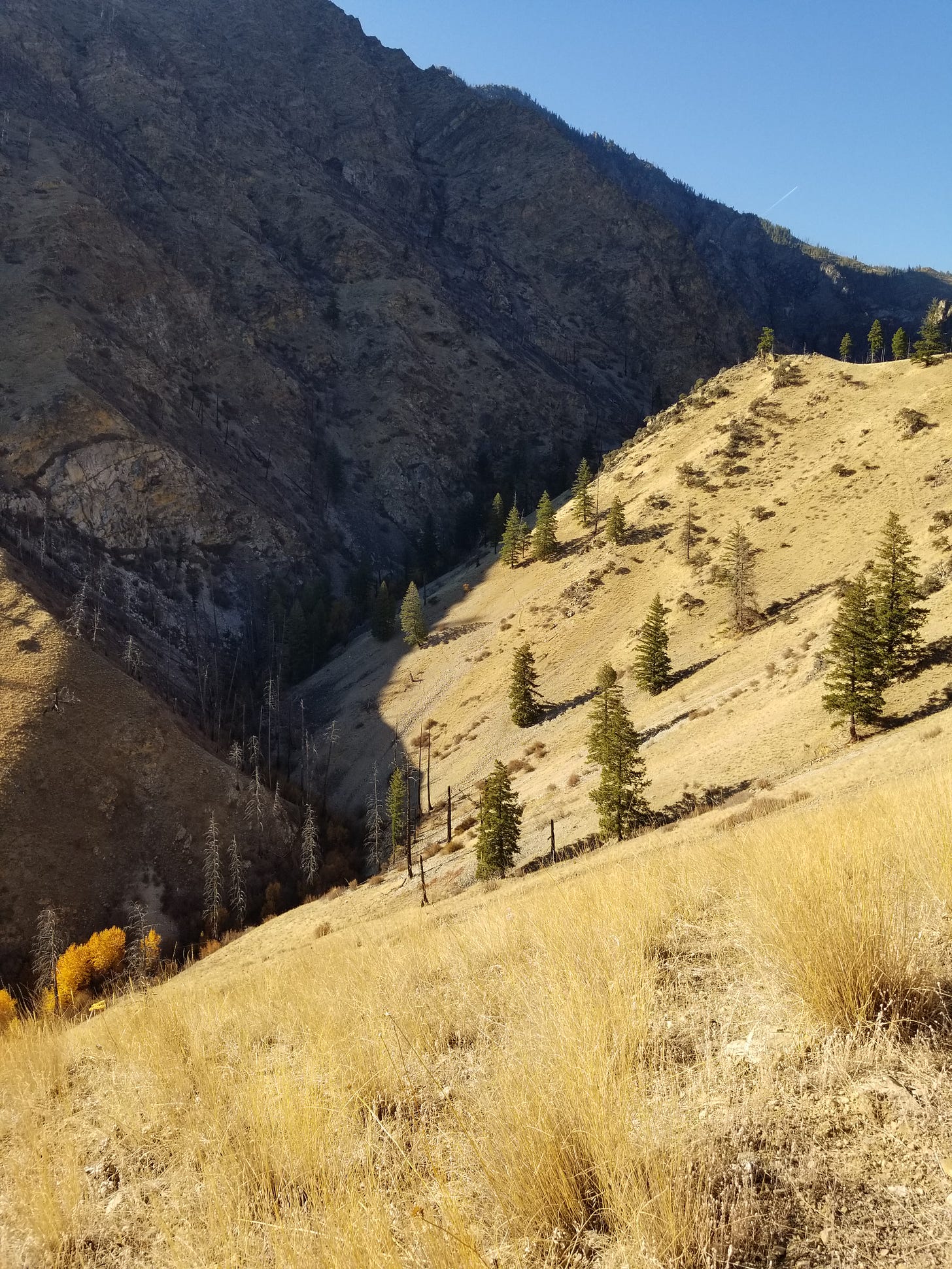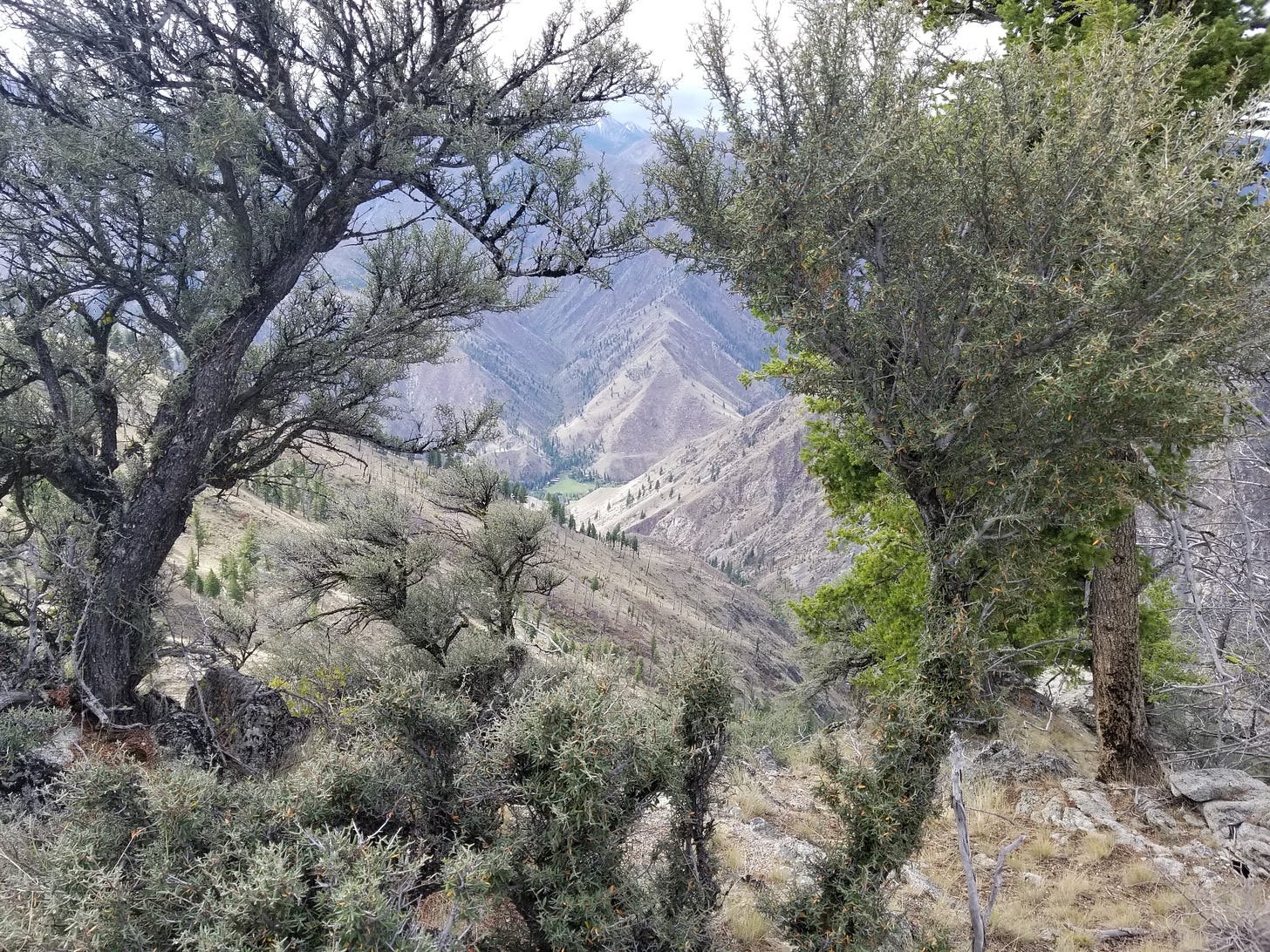
Confession
“If you’re comfortable, you’re not learning.”
My favorite college English professor said those words to me in her tiny office-within-another-office some thirty years ago. The words stuck. I shared them with countless classes of students during my teaching career.
Besides family, I’m not sure I value anything more than learning. Yet I am a creature of comfort and routine. Hence, a defining paradox.
Dislodging me from the familiar is a struggle. I can confront uncomfortable, challenging ideas fairly easily; they are abstract and disembodied. But unfamiliar experiences or people leave me anxious, unmoored, searching for a place to disappear into.
Still, I keep finding that if I can breach the wall of the Comfort Zone, usually a payoff follows. This week for The Wild Card, I thought I’d get a bit more personal. Read on!
Profession
I decided to become a college professor when I was a college student. The role was familiar; I saw it every day, after all. Obstacles littered the pathway, of course; navigating graduate school and job markets and institutional idiosyncrasies took time and filled significant intellectual and emotional space. Nevertheless, “professor” represented a sensible, comfortable choice.
Even the type of historian I became looked familiar. What I studied mapped neatly onto my life. I researched modern American history in the US West. I lived through modern American history in the US West. To be sure, I stretched a little: I investigated the time before I was born and topics that were not directly in my experience. In that respect, I pushed a little beyond my own life by following a general intellectual curiosity.
This point requires emphasis. My brain drove me, not my lived experience. Some of my colleagues studied their hometowns or their own previous occupations (or preoccupations) – valid and useful approaches to work for sure. But I spent most of my academic career writing about public lands management and wilderness activism, and I spent very few days or nights in national forests or parks and never did anything that approached environmental “activism.”1
My comfort zone, you see, resembled a book. It looked like libraries. It appeared as archives. My comfort zone was shaped like a classroom.
Transgression
In those contexts, I felt mostly comfortable. I appeared thoughtful and focused in the classroom. Rarely did conversations veer far off the topic at hand. Much to my students’ chagrin, I was never the professor who, at the first sign of spring, spread out in a big circle on the quad to hold class. Assignments rarely fell far outside the norm. I held high standards and took them seriously. Start on time. Complete the work. Meet the deadlines. Show critical thinking. Push further. Further still. (Rinse, repeat.)2
Then, an uncomfortable opportunity presented itself to me, and I didn’t know how to decline. (And I tried.)
My university developed an experiential learning program called Semester in the Wild (SITW) held deep in the Idaho wilderness, 30-plus miles from the nearest road, at a research station it held. Students came and studied history and writing, ecology and wilderness management and leadership.
Close readers might have picked up some important cues. I was not experienced in the backcountry (despite researching and writing about it). I was comfortable in classrooms with desks, not classrooms with deer, creeks, and trees. SITW would disrupt my career of comfort, but how do you say no to this?

Progression
For five years, I spent between 10 and 14 autumn days at the Taylor Wilderness Research Station teaching students surrounded by a couple million acres of designated wilderness, mainly the Frank Church-River of No Return Wilderness – or, simply, The Frank.
This forced me to confront uncomfortable situations. The small plane that flew me into this spot was new and not always comfortable. Living in close proximity with a dozen 20-year-olds was new and not always comfortable. Teaching in compressed time and in classrooms in circles on the grass or around a campfire or along a charred log was new and not always comfortable.3 Truth be told, it took a couple years before I found my own pace and comfort level.
Along the way, step by step, searching for equilibrium in The Frank, the work changed me, as a scholar, a teacher, and a person. That may sound trite, but that doesn’t make it false.
The public lands I studied I now visited. I learned their sounds and smells. I imbibed their tastes. I drank in view of ridges and drainages, trees and rocks, streams and clouds and so many stars. Archives were necessary but insufficient. After years of confining myself to comfort, I learned the power of “researching” while suffering up steep trails.

My list of academic publications does not include work that directly grew out of these experiences. I never wrote a history of The Frank or the research station as I sometimes imagined I would. I’m not sure I can pinpoint any single piece of academic writing that I can attribute to being out in The Frank. But I’m also confident no word I wrote was ever quite the same after these experiences. I felt dispossession of Indigenous lands differently after seeing remnants of pithouses across Big Creek. I understood the challenges of homesteading and mining after walking mile after mile in places without flat ground. I knew preserving roadless areas in tangible ways after flying over miles and miles of ridges and valleys with only occasional footpaths marking the ground.
I had resisted and hesitated getting out there. I knew some of my most uncomfortable moments as a teacher with SITW. But it surely was the most rewarding, transformational experience I enjoyed as a professor.
Talking to Dead People (and Live Ones)
Teaching outdoors – around a campfire or trudging up one of the endless mountains – unlocked other things, including broader interests.
I once sat on a panel with scholars explaining how we did our work. The person before me was an anthropologist, a colleague I admired deeply. He spoke about how he was interested in the ways people understood place and their relationship to it. He described listening closely to people and the ways they described the meanings and values the landscape held for them. When he finished his eloquent description, I stood up and deadpanned (a defense mechanism to hide my discomfort), “I do the same thing, but I talk to dead people.” The fact that the past was the past – and untouchable – was one of its attractions to me.4 I didn’t have to phone people up. I could read their words or examine their remnant reports instead. And yet I knew (and know) not everything is captured in the past. What’s more, not all my interests stay there. So today, after leaving the professoriate, my license to engage the present feels new and refreshing.
These days, I reach out and talk to community members when I am trying to understand this place. I invariably introduce myself by saying, “I was a historian,” before correcting that, saying, “I am a historian but now am also interested in the present.” I say this to people I’m interviewing and have never met before. Such conversing comes easily to some people. I’m not one of them.
So this thing that scared me once – I started college imagining myself as a journalist but thought “talking to dead people” seemed safer – is now almost a daily occurrence. And after each conversation, my mind is energized and engaged, and I’m excited for more.5
I’m not sure, but all of this might be because I got onto that small plane, flew back into the mountains, landed on a grass airstrip, and tried to teach in the woods, The Frank in its immensity embracing me in my smallness.

Closing Words
Although I point out above that I did not turn my academic writing directly toward this place, I have written about my time in The Frank. A piece in Weber – The Contemporary West called “When You Know the Price of a Huckleberry” discusses some of my favorite environmental thinkers and muses about the the value of education. I also wrote an essay called “Wild Times” in Barzakh Magazine that meditates on time in this place, especially the people who called The Frank home in centuries past. (Sometimes, I think this is my favorite essay I’ve written.)
As always, you can find my books, and books where some of my work is included, at my Bookshop affiliate page (where, if you order, I get a small benefit).
Taking Bearings Next Week
Next week, I’ll return to The Classroom. I’ve been busy enough lately that I haven’t figured out what lesson to teach. You’ll have to check back to find out. Stay tuned!
If you enjoyed this newsletter, press the Like button below or leave a Comment. If you know others who might enjoy this weekly newsletter, share it with them. And if you are able, consider upgrading to a paid subscription. Thank you for reading.
I often feel sheepish admitting this overly intellectualized approach to my professional career.
Of course, I adjusted and tried new things. I didn't recycle syllabi; I tweaked them.
This accounting does not list the rattlesnakes whose potential presence at any moment meant I lived in a state of heightened fear/preparedness that was decidedly not comfortable.
To be clear, other historians do speak with people still living and focus on things in the nearer past than I was ever comfortable with.
Don't get me wrong, it also exhausts me. As an introvert, any company beyond my dogs takes a toll.


